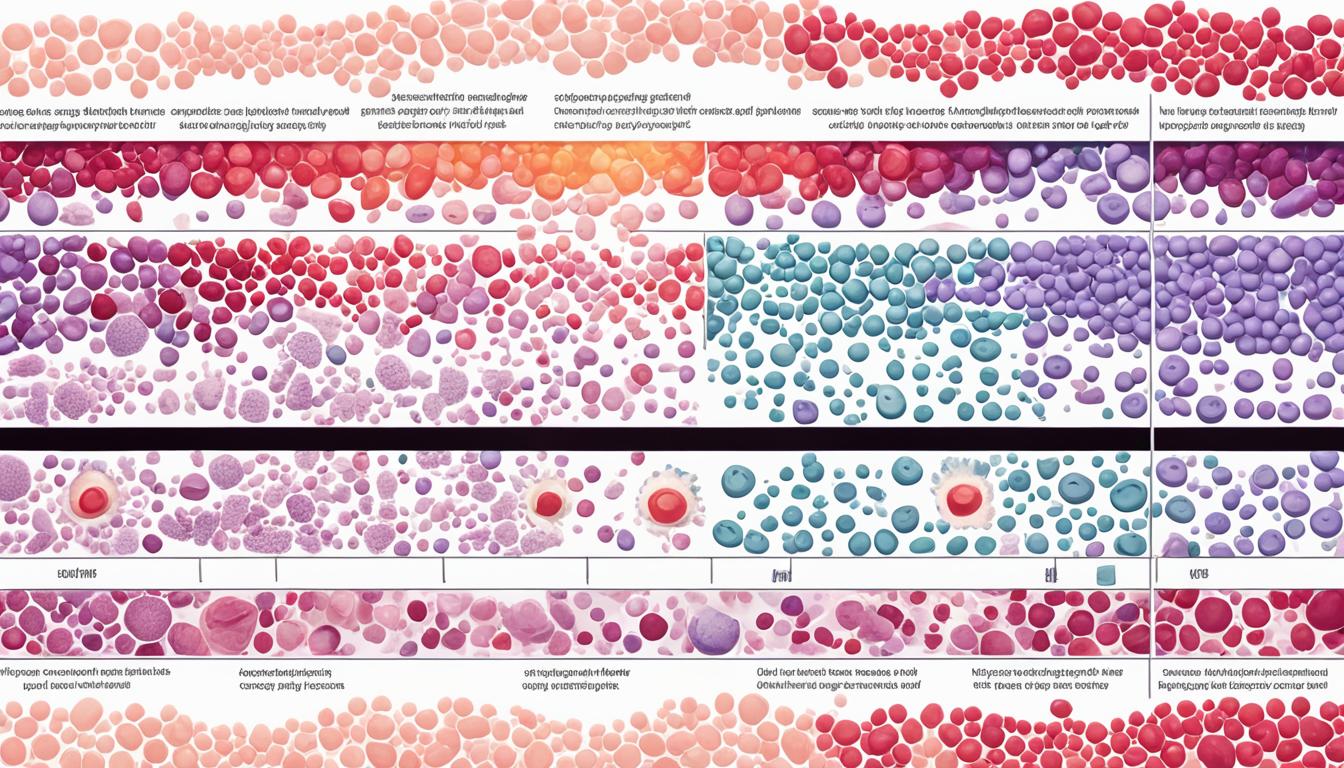Oral cancer starts in the lining of the mouth. You might know it as oral mucosa cancer or mouth cancer. Tobacco use, like smoking, raises the risk. So does drinking and certain types of the human papillomavirus (HPV).
Signs of oral cancer are patches or bumps inside the mouth. You may also have mouth sores that won’t go away, find swallowing tough, or lose weight without trying. Finding it early makes treating it easier and often more successful.
Doctors check for oral cancer in different ways. They might look inside your mouth, take a tissue sample (biopsy), or use imaging tests. These tests show how much the cancer has spread and help decide the best treatment.
The go-to treatment for oral cancer is surgery to get rid of it. But sometimes, you’ll also get radiation or chemo. The exact treatment varies based on cancer stage, your health, and what you prefer.
Key Takeaways:
- Oral cancer starts in the lining of the mouth, mostly due to tobacco, alcohol, and HPV.
- Getting diagnosed early is key to better treatment and recovery.
- Symptoms include odd patches in the mouth, sores that won’t heal, swallowing troubles, and weight loss.
- Diagnosis uses exams, biopsies, and imaging to see the cancer’s stage and spread.
- Most oral mucosa cancers are treated with surgery, with radiation or chemo sometimes also needed.
Risk Factors for Oral Cancer
It’s crucial to know the risk factors for oral cancer to stop it early. Things like smoking, drinking a lot, and certain infections can increase your risk. By being aware of these factors and living a healthy life, you can lower your risk.
Tobacco Use
Using tobacco, like smoking, is a big reason people get oral cancer. This includes not only cigarettes but also cigars, pipes, and smokeless forms like snuff or betel quid. It’s key to remember that even without smoke, products like snuff and betel quid are risky.
Alcohol Consumption
Drinking a lot of alcohol, especially when you also use tobacco, can be harmful. It can hurt the cells in your mouth, making it easier for cancer to grow there.
HPV Infection
Getting certain types of HPV can also up your chance of getting oral cancer. HPV is a virus spread through sex that can affect the mouth, throat, and more. It is vital to have safe sex and get checked often for HPV.
Stem Cell Transplants and Fanconi Anemia
If you’ve had a stem cell transplant or have Fanconi anemia, your risk is higher. These situations make your body less able to fight off cancer, including oral cancer.
Knowing about these risks and choosing a healthy life can make a big difference. Stay away from tobacco, limit alcohol, have safe sex, and keep up with your health check-ups.
Be educated, act early, and look after your oral health well. These steps can help cut your risk of oral cancer.
Diagnosis and Treatment of Oral Cancer
Finding oral cancer early is key to combatting it. Early detection improves treatment success and survival. Diagnosis involves reviewing medical history, checking symptoms, and examining the mouth.
Doctors look at risk factors, past health, and family history. They also check for any strange patches or bumps in your mouth. A physical exam can show signs of cancer.
A test called exfoliative cytology checks mouth cells for cancer without surgery. A biopsy is more certain. It takes out a tiny piece of tissue to study.
Endoscopy and imaging like CT scans help see the cancer’s spread. This tells a doctor how big the cancer is and where it is.
After diagnosis, treatment matches the cancer stage and patient’s health. Surgery to remove the cancer is common. The operation area depends on the cancer’s size and location.
Treatments also include radiation and chemo, often with surgery. Radiation uses energy to kill cancer cells. Chemo drugs also destroy cancer cells.
Treatment success depends on the cancer stage and spread. Survival rates change, from 39.3% with distant smalls, to 86.6% if it’s found early.
Treatment Options for Oral Cancer
Table:
| Treatment Option | Description |
|---|---|
| Surgery | Primary treatment involving the surgical removal of cancerous tissue and affected lymph nodes. |
| Radiotherapy | Uses high-energy radiation to target and destroy cancer cells. |
| Chemotherapy | Includes the use of drugs to kill cancer cells throughout the body. |
| Combination Therapy | Combines surgery, radiotherapy, and chemotherapy for comprehensive treatment. |
Technology and research help care get better for oral cancer. Regular dental visits and knowing risks help too. If you have mouth issues, see a doctor fast.
The Role of Mesenchymal Stem Cells in Oral Cancer
Mesenchymal stem cells (MSCs) show promise in fighting oral cancer. They can move to where tumors are and release substances. These substances may change the area around the tumor, possibly slowing cancer.
Studies suggest MSCs might help treat oral cancer in several ways. They can help control the body’s immune response. They also improve healing and help carry medicine right to the tumor.
The way MSCs and cancer interact is still a puzzle, though. Some research is positive about MSCs’ possible benefits. But, some worry they could also help tumors grow. We need more study to really understand and choose the best way to use MSCs.
Looking into new ways to use MSCs and combining them with other treatments could make big steps in oral cancer care. Fully grasping MSCs’ effects in the tumor environment is key. It could open doors for better, focused treatments against oral cancer.

